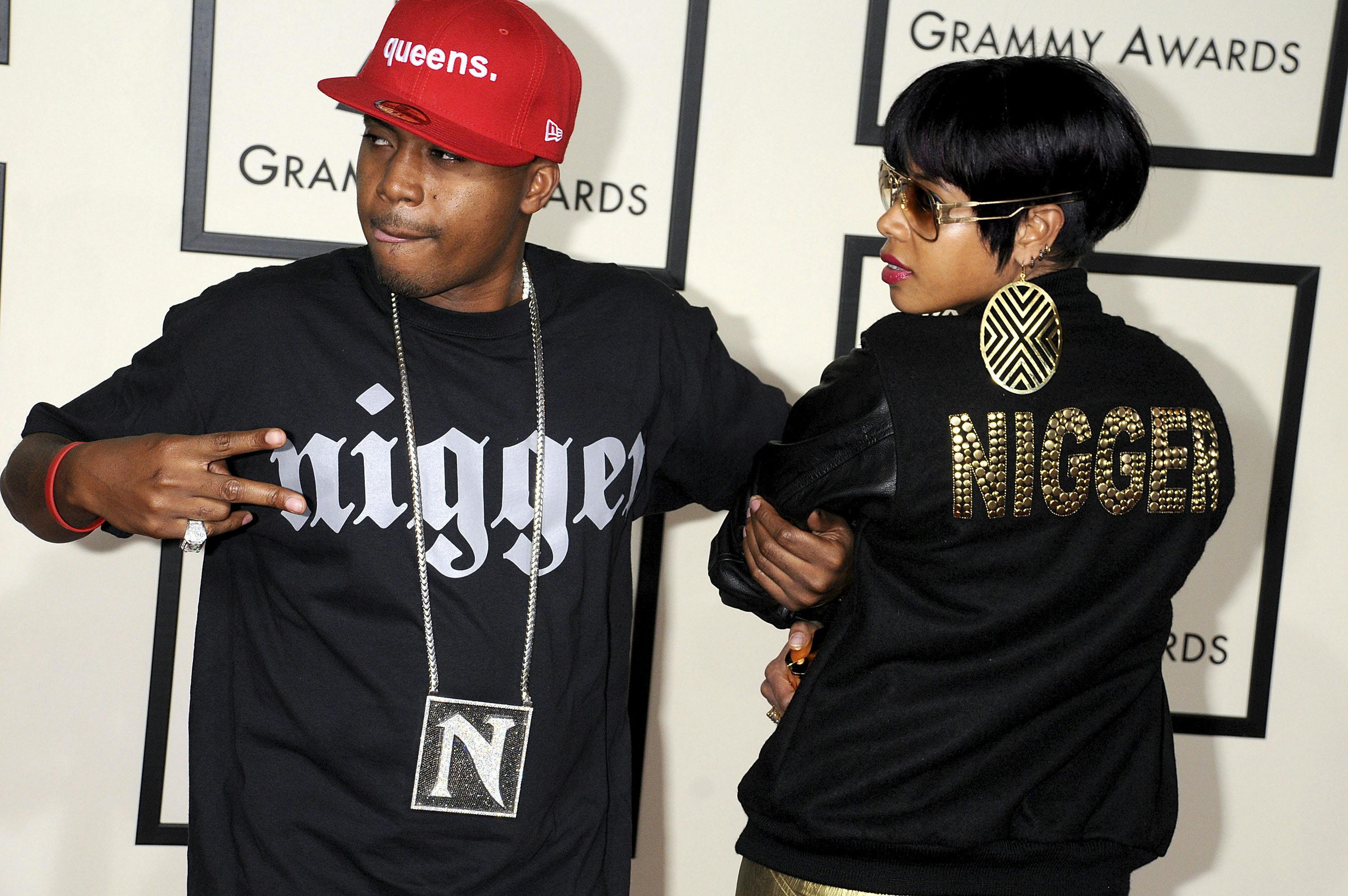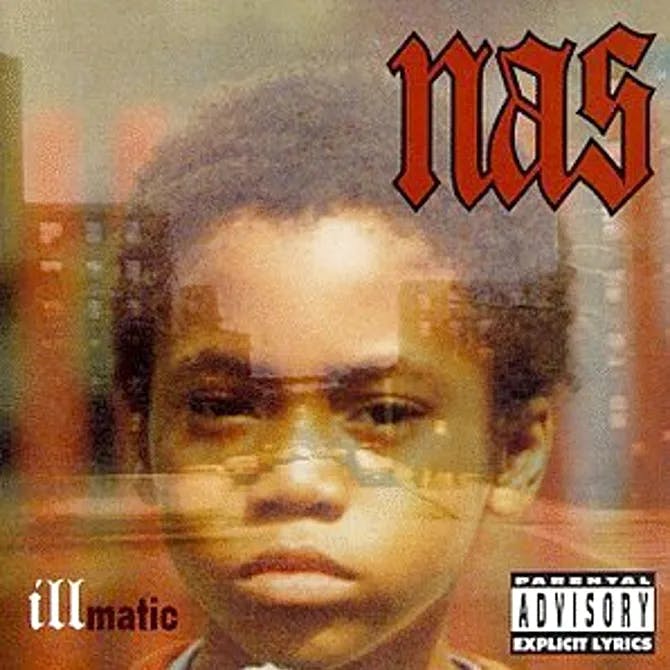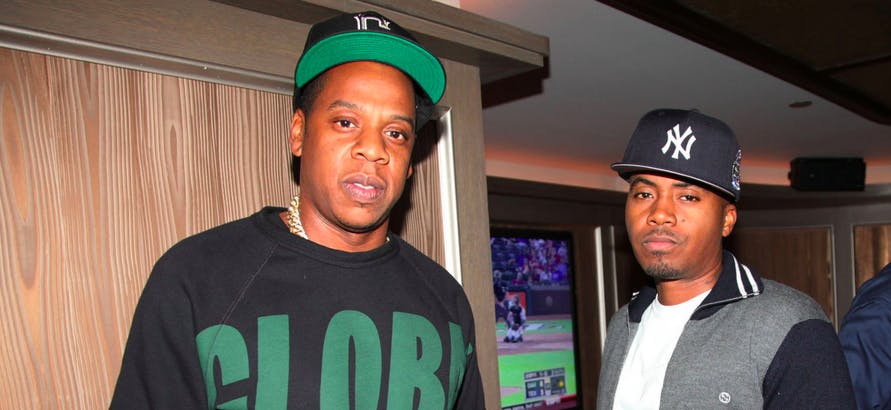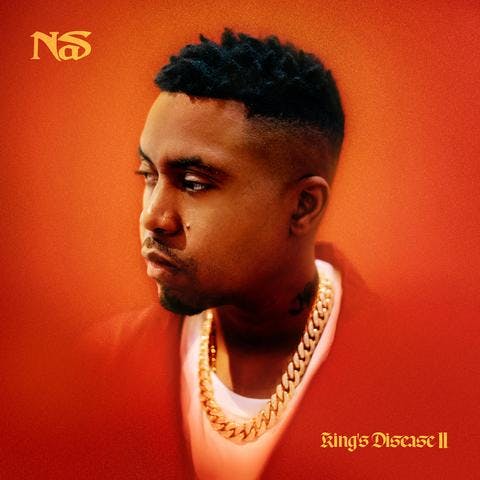
Nasir Jones, the New York rapper, has been a fixture in Hip-Hop history for the better part of 30 years. He first gained attention with his scene-stealing guest appearance on Main Source’s classic “Live At the BBQ” before releasing some buzzworthy singles en route to dropping his critically acclaimed debut album Illmatic — with essentials like “N.Y. State of Mind,” “One Love,” “The World Is Yours,” and “It Ain’t Hard To Tell.”
Since that release, Nas has endured praise and criticism for a discography that reveals the gifted emcee to be a restless artist who has never settled for what worked the last time. His fearlessness across decades has yielded mixed results, but with the strong run he’s been with superproducer Hit-Boy of late, is it time to rewind and reassess his discography overall, from the best Nas albums to his best songs?
With all of the praise heaped upon Nas and Hit-Boy’s recent four-album run of greatness (King’s Disease I, II, and III, plus 2021’s Magic), it’s easy to forget that it wasn’t all that long ago that fans commentators and critics were handwringing over the Queensbridge emcee’s output.
Nas has more than one classic in his oeuvre, but there was a feeling that he just couldn’t seem to put together a strong run of rap albums. Nasir was given a lukewarm reception back in 2018, and the compilation, The Lost Tapes 2, released a year later, was seen as a hodgepodge of inessential tracks from the legendary lyricist. Those two releases were a half-decade after his previous acclaimed release: 2012’s Life Is Good. That studio album was one of the most praised of his latter career, a maturation record that featured Nas musing on fatherhood and divorce, among other things.
But even Life Is Good, with the hit track “Daughters,” was a return to form for the Queens rapper after another fallow period. Although the 2010s Distant Relatives, his collaborative album with Damian Marley, Distant Relatives, was incredibly well-received, his solo albums were far less revered in the late 2000s. Projects like Untitled and Hip-Hop Is Dead had drawn tremendous conversation upon their respective releases: Hip-Hop Is Dead dropped in 2006 to a middling reception, despite the incessant debate that the album’s title instigated at the time. It was also his first release for Def Jam Recordings, run by his former rival Jay-Z then. It all created a firestorm around the project, but the album was met with tepid reviews.

Similarly, 2008’s Untitled was also the subject of tremendous conversation in the run-up to its release; the album’s controversial original title was N.I.G.G.E.R., with Nas and then-wife Kelis, infamously wore shirts emblazoned with the word to that year’s Grammy awards, and protests and criticism prompted the rapper to change the album–which he ultimately decided would simply be Untitled. But, once again, the album wasn’t well-received by fans or critics.

Bursting out the gate with a debut album as deified as Illmatic, Nas has always had to bear the brunt of that first album’s legacy.
His sophomore album, It Was Written, was his first major commercial success, although many fans felt he’d watered down his sound. Those fans unfairly maligned Written, as it showed an ambitious emcee stretching his sonic palette and topical perspective–even if it meant moving beyond the hardcore “boom-bap” that had made him famous.
In hindsight, the criticism of It Was Written, featuring tracks like “If I Ruled the World,” “I Gave You Power,” “The Message,” and “Affirmative Action,” feels misplaced and short-sighted, but the two albums that followed it almost deep-sixed Nas in the late 1990s.
Both I Am… and Nastradamus suffered from various ailments (poor marketing and controversy surrounding the music video for the hit single “Hate Me Now” wounded the former, and countless leaks short-circuited the latter in its original form). Still, the consensus at the time was that the once-and-former “chosen one” who’d been deemed the next Rakim by “real Hip-Hop” heads was drowning in a sea of Y2K-era flossiness.
But as fans know, his feud with Jay-Z circa 2001 reinvigorated and galvanized Nas. 2001’s Stillmatic, with standout tracks like “Ether,” “2nd Childhood,” and “One Mic,” remains a high-water mark for both Nas and early 2000s Hip-Hop, as he fired back at his Brooklyn-based nemesis with a Hip-Hop album that was remarkably focused and strong.

He followed it with his first compilation, The Lost Tapes, showing what late '90s Nas might’ve sounded like were it not for this new scourge called internet leaks. Whether one considers The Lost Tapes an “official” project is moot; it’s one of the best collections to showcase everything that makes Nas a great artist. And he followed it with yet another excellent release in 2002; the eclectic God’s Son.
That three-release stretch, including tracks like “Made You Look,” “I Can,” and “Doo Rags,” had arguably been the most substantial run from Nas in his catalog–up until now.
But it was stopped dead in its tracks by 2004’s Street’s Disciple, a double album that saw Nasir Jones’ reach exceeding his grasp. Overstuffed and overlong, …Disciple (as well as Jay-Z’s equally lackluster The Blueprint 2) seemed to signal a nadir for Hip-Hop’s double album fetish. It also seemed to signal that Nas, while forever a masterful MC, had lost his skill for songcraft and struggled to find chemistry with producers like Dr. Dre and DJ Premier.

…Disciple kicked off that mediocre stretch that persisted into the early 2010s for Nas, but it feels like ancient history now. With the brilliance that he and Hit-Boy have delivered over the past two and a half years, including recent releases like King’s Disease II and King’s Disease III, Nas’ collaboration with Lauryn Hill on “Cherry Wine,” and his work with Scarface on “Black Republican,” it makes for an intriguing shift in the way the public and commentators see Nas and his discography.
The truth about longevity is that it’s never been about flawlessness. There isn’t a single artist who has been fortunate enough to have a long career who doesn’t have misses on their resume. That’s par for the course, especially if you’re an artist who doesn’t rest on your laurels.
Nas is such an artist. His misses aren’t evidence of lack; quite the contrary–they showcase a creative who has no interest in rehashing formulas. That should always be praised. Artists can sometimes be pressured by labels, fans, and peers to “stick to what works.” Nas is proof positive that pushing yourself into new directions is the most excellent way to sustain your art and grow as an artist. Thirty years into the game, scouring his lengthy catalog is rewarding. It’s a testament to greatness. And to persevering through a career’s hills and valleys.



